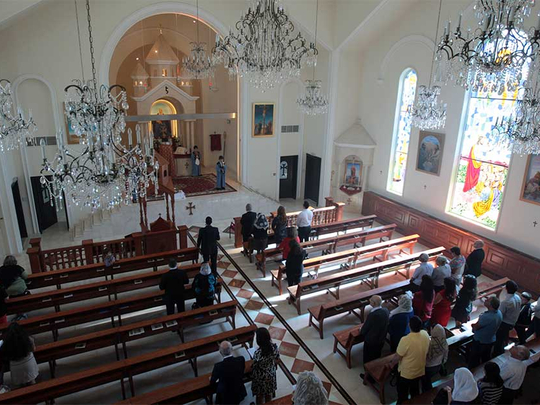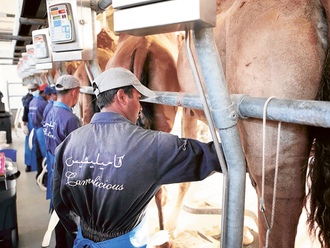
Dubai: Though Christmas is celebrated on December 25 by majority of the Christians, the Orthodox community celebrates it on January 7.
The Orthodox community observes Christmas day on January 7, according to the old Julian calendar which was revamped in 1582 by Pope Gregory prompting the move of Christmas day to December 25.
Ethiopian Tigest Girma said the Ethiopian Orthodox church celebrates Christmas eve on January 6 making Christmas day January 7. “We start our Holy mass at 10pm and end at 3am,” she said.
“When we receive communion and leave church we go back home and break our fast by eating anything we want since we have been abstaining for more than a month.”
Girma explains that the during the 45-day fast they give up any foods coming from an animal until Christmas eve when they feast on some of Ethiopia’s signature dishes with friends and family. Similarly, the Coptic Orthodox church celebrates Christmas eve on the sixth in church with a Holy Mass ending the 45-day fast.
Though the Coptic Christmas fast includes seafood, foods coming from other animals and dairy products are given up. J.M., a Coptic living in the UAE working in finance, expressed the similarities between the Ethiopian and Coptic traditions on Christmas eve.
“The differences between the Ethiopian and the Coptic are minor,” said J.M. “For instance, we start praises from 4:30pm which end around 7:30pm and the main celebration, which is the Holy Liturgy, starts at 7:30pm and goes on till 12:15am.”
J.M. shared that Christmas is the most wonderful time of the year given that family and friends gather to share a meal together. He elaborated that the friends that are invited to his house for dinner are more than family given that they have grown up together.
“The family friends that we have are actually family because we have grown up and celebrated everything together since birth,” he said. “We also make an effort to exchange present on January 7 rather than December 25 to give the new year an exciting start.”
As for the Armenian Orthodox, their Christmas celebrations take place on January 6.
Unlike other orthodox communities, where Christmas is known as the day Jesus Christ was born, Armenians celebrate on the sixth both the birth and baptism of Jesus Christ.
The Armenian Community in Dubai and the northern emirates unite under the pointed dome of Sharjah’s Saint Gregory the Illuminator Church, to pray, drink holy water and hear the Christmas sermon.
“On January 6, the family makes a point to spend Christmas lunch together,” Armenian-national, Zepure Lentian, said.
Fruits, walnuts and Choreg (a sweet bread with raisins) are offered to visitors in most households while they wait for the holiday meal.
“I usually start preparing the dishes the day before. The traditional meals include kofta, which is a meat-ball type of dish. It is served with a yoghurt based soup. Some choose to put an olive or a coin in one of the meat balls, which is said to bring good luck throughout the year to whoever happens to have it. Manti is another traditional Christmas dish, which is a dumpling filled with minced-meat.”
Lentian said on Christmas eve (January 5) carolers go around homes and sing ‘Kharhourt medz,’ a Armenian Christmas hymn.
“They are usually given candy, choreg or other sweets. However, this doesn’t happen much in the UAE. It is more prominent in Armenia and countries with a significant Armenian diaspora population, like Lebanon or Syria.”
Church-goers are given holy water to promote a good year.
“For those who don’t attend the church sermon, holy water is brought back home so they would drink it before lunch.”
— Maria Botros is a trainee at Gulf News








